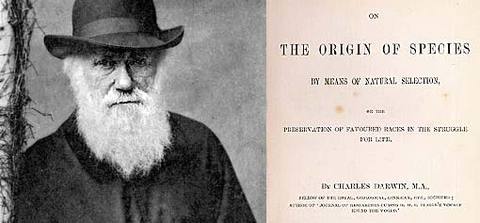Insight article

Do strategic narratives have an adaptive advantage?
A couple of weeks ago I was asked to do some research for a journal article on leadership and management styles. I was supplied with a Darwin quote as a steer on the message we were trying to get across in our article; “It is not the strongest of the species that survives, nor the most intelligent that survives. It is the one that is most adaptable to change.” My research ended up taking a bit of a tangential path as I discovered that the quote was in fact a misquote helpfully adapted over the years to better suit the needs of the management theorists who have adopted it.
The management lecturer Leon Megginson is thought to have been the first person to paraphrase Darwin’s original scientific argument on adaptability to illustrate his teachings in management lectures. Neil Matzke won a competition set by the Darwin Correspondence Project to discover the source of some of Darwin’s most famous misquotes and in documenting his findings dubbed the process of “pithification” which he believes may well be a common trend if we researched the origins of famous bogus quotes.
In describing his theory of evolution, Darwin went to great lengths to provide detailed evidence; no less than we would expect of any scientist. But over one hundred years later what Megginson took from Darwin’s work was a simple message that he could use to reinforce the importance of adaptability to change in management. Megginson chose to paraphrase Darwin’s scientific argument to make his management lectures more succinct, easier to access and full of impact. Megginson found communication with his students was more effective if he used a brief and concise version of a detailed scientific theory that applied to species, and then used relevant management examples to bring his point to life.
When I started researching the article I was going to write about how establishing a culture of storytelling allows organisations to constantly adapt to the continually changing environments in which they operate and I was going to use Darwin’s “quote” to reinforce how important this adaptive advantage is. I still believe that this principle is hugely important for managers to consider as industries are becoming increasingly globalised and technology driven and the speed of change gets ever faster. However as I became side-tracked by investigating the origins of this particular famous quote I developed a second hypothesis specifically on strategic narratives: are organisations who are able to tell their often complex and detailed strategies in the form of a clear and compelling narrative carrying out a similar process of “pithification”?
I believe they are. In the Collins English Dictionary, “pithy” is described as “terse and full of meaning or substance”. A strategic narrative enables an organisation to tersely convey great meaning and, in the same way that Megginson used management specific examples in his lectures to bring to life Darwin’s “quote” in terms relevant to his students, leaders and managers should use specific examples relevant to the audience they are talking to when sharing their strategic narrative. Neil Matzke suspects that pithy quotes have an “adaptive advantage” in their habitats of motivational seminars, books of inspirational quotes etc. I suspect that strategic narratives may have a similar “adaptive advantage” in the environment of business communications.
